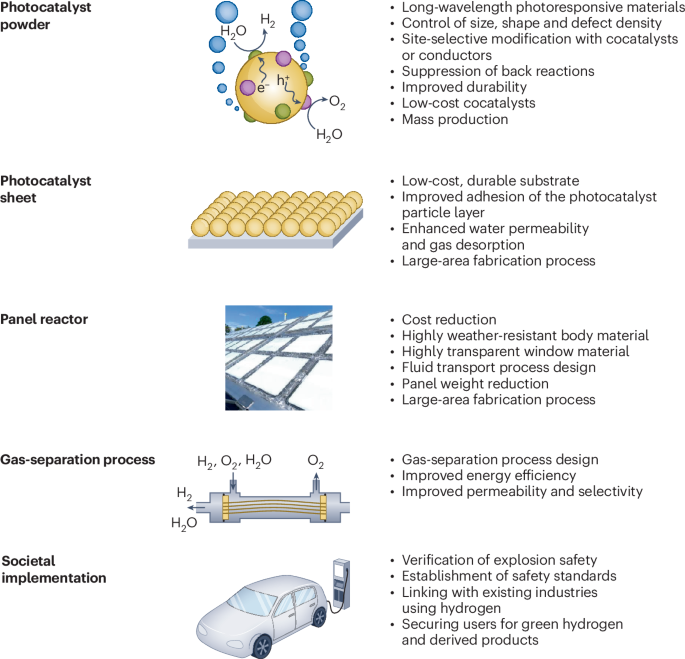Advancements in Solar Hydrogen Production Technologies: A Sustainable Future
Key Ideas
- Research in solar hydrogen production using particulate semiconductor photocatalysts is showing promising results.
- Technological progress in solar-to-hydrogen energy conversion is driving towards a more sustainable future.
- Efforts are being made to improve the efficiency and scalability of solar-driven water splitting systems.
- Solar hydrogen production offers a potential solution for renewable and clean energy generation.
The article discusses recent advancements in solar hydrogen production technologies, focusing on the use of particulate semiconductor photocatalysts for water splitting. Research by various scientists and institutions has demonstrated the feasibility of solar-driven water splitting as a means to produce clean hydrogen fuel. Studies have shown high solar-to-hydrogen energy conversion efficiencies and the potential for sustainable hydrogen production on a large scale. Key topics covered include the mimicry of natural photosynthesis processes, the development of artificial photosynthetic systems, and the integration of solar energy with photocatalytic systems. Efforts are ongoing to improve the efficiency, scalability, and cost-effectiveness of solar hydrogen production technologies to make them viable for widespread adoption. The research highlights the importance of solar hydrogen as a renewable energy source that can contribute to a more sustainable future by reducing carbon emissions and dependence on fossil fuels.
Topics
Production
Renewable Energy
Technology
Sustainability
Solar Energy
Photocatalysts
Artificial Photosynthesis
Latest News
